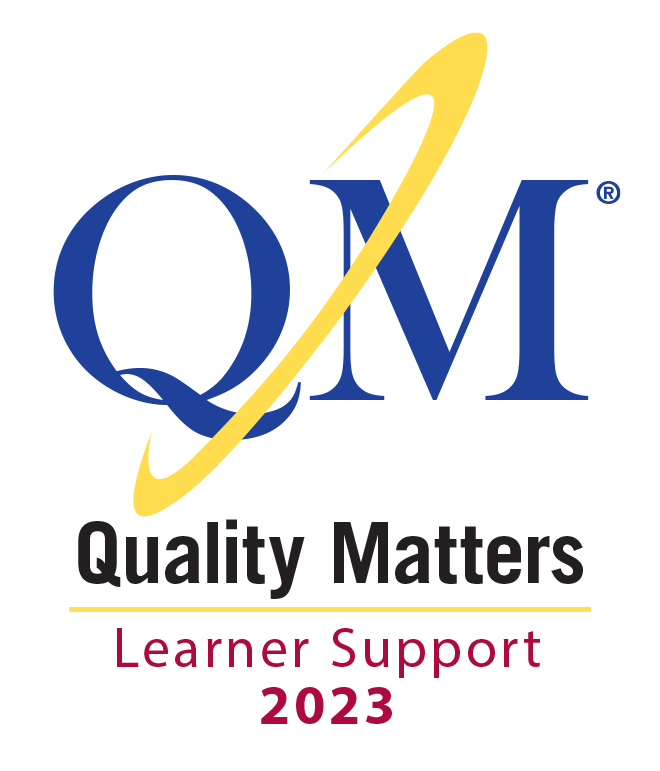Questions? Request Information
Degree Completion Journey
Your eight core education courses, worth 24 credits, define the foundation of knowledge and skills for you to provide instruction to diverse populations. You will study in-depth those areas that most influence educational institutions, including instructional methods, curriculum design, assessment strategies, advanced pedagogical theory, and principles of leadership. Your specialization options are composed of courses that you can select for yourself, based on your personal interests and expertise. Your courses are taught by education faculty members who represent a rich cross-section of education professionals, all have advanced degrees, and who are leaders in the field.
To be awarded the Master of Arts in Education degree, all students must complete 36 credits, with a 3.0 minimum grade point average.
An online degree from the University of Arizona Global Campus does not lead to immediate teacher licensure in any state. If you want to become a classroom teacher, contact your state’s education authorities prior to enrolling at the University of Arizona Global Campus to determine what state-specific requirements you must complete before obtaining your teacher’s license. University of Arizona Global Campus graduates will be subject to additional requirements on a state-by-state basis that will include one or more of the following: student teaching or practicum experience, additional coursework, additional testing, or, if the state requires a specific type of degree to seek alternative certification, earning an additional degree. None of the University of Arizona Global Campus online education programs are accredited by the Council for the Accreditation of Educator Preparation (CAEP), which is a requirement for certification in some states. Other factors, such as a student’s criminal history, may prevent an applicant from obtaining licensure or employment in this field of study. All prospective students are advised to visit the Education Resource Organizations Directory (EROD) and to contact the licensing body of the state where they are licensed or intend to obtain licensure to verify that these courses qualify for teacher certification, endorsement, and/or salary benefits in that state prior to enrolling. Prospective students are also advised to regularly review the state’s policies and procedures relating to licensure as those policies are subject to change.
Alabama Students Education Preparation: State authorization to provide a program related to the preparation of teachers or other P–12 school/system personnel does not indicate eligibility for an Alabama professional educator or professional leadership certificate. Applicants who complete an educator preparation program at a non-Alabama institution must apply for an Alabama professional educator or professional leadership certificate through the Alabama Certificate Reciprocity Approach. Current requirements may be found at .
California Students: An education degree offered through the University of Arizona Global Campus online modality does not lead to teacher licensure in the state of California. In order to obtain teacher licensure, a baccalaureate or higher degree, except in professional education, from a regionally-accredited college or university is required. Residents that meet the education requirement must also complete a CA state approved teacher preparation program which includes coursework, a supervised student teaching experience and a formal recommendation by the institution where the preparation program was completed. They also must pass the state exams which includes the California Basic Educational Skills TestTM (CBEST®) and California Subject Examinations for Teachers® (CSET®). A criminal history background check by fingerprint via a Live Scan service must be passed that may include an investigation into felony and misdemeanor convictions. For additional details regarding the CA requirements for obtaining a single-subject teaching credential, please visit: http://www.ctc.ca.gov/credentials/leaflets/cl560c.pdf. For additional details regarding the CA requirements for obtaining a multiple-subject teaching credential, please visit: http://www.ctc.ca.gov/credentials/leaflets/cl561c.pdf.
Kentucky Residents: Please be advised that although the University of Arizona Global Campus College of Education offers a variety of programs aimed at preparing potential educators in diverse settings, our K–12 educator preparation programs are NOT accredited in Kentucky by the Education Professional Standards Board and are NOT recognized for initial, additional, or renewal of certification or salary enhancement (rank change) for K–12 educators in Kentucky. For more information, please visit the Education Professional Standards Board’s website at http://www.epsb.ky.gov/mod/page/view.php?id=220
Missouri Students: Contact the Missouri Department of Elementary and Secondary Education, Routes to Certification at 573-751-0051 or at http://dese.mo.gov/eq/cert/routes-to-certification.htm to teacher certification in missouri.com to verify additional coursework and/or other requirements and how those requirements can be met in Missouri.
Certain degree programs may not be available in all states.
The Online Teaching Support Certification recognizes programs that require all online faculty to undergo training in best practices for online course delivery, provide faculty with ongoing pedagogical support, encourage faculty professional development to increase their knowledge and skill in online teaching, emphasize instructor availability and feedback to learners, and collect and use feedback from learners to improve online teaching. Learn More

The Online Learner Support Certification recognizes programs that provide all the critical student and academic services needed for learner success and use learner feedback to continuously improve those services.

Customize Your Education Degree with UAGC Specializations
-
Sharpen the focus of your online education when you select your specialization for your degree program. Set your course to reach the pinnacle of your education career and benefit from opportunities to advance your career. Students enrolled in the Curriculum and Instruction specialization are required to complete 12 credits beyond the 24 credit core classes. Your specialization may require prerequisite course work. Please talk to your advisor for more information.
-
Reach the pinnacle of your career in education when you include the Early Childhood Education specialization in your degree program. If you choose to specialize in Early Childhood Education, you will look specifically at topics such as physical, cognitive, emotional, and social development of babies and preschool-aged children. These courses are taught online as part of your degree program. The University of Arizona Global Campus offers an Early Childhood Education specialization for select degrees such as the Bachelor of Arts in Education Studies and the Master of Arts in Education. Your specialization may require prerequisite course work. Please talk to your advisor for more information.
-
Study the relationships between planning and student learning through the Higher Education Specialization program. In this addition to your online degree program, learn how to improve your teaching skills to fit higher education classrooms and teach at a deeper, more engaging level. Courses will focus on ideologies, people, cultures, and movements that have had an impact on higher education. Your specialization may require prerequisite course work. Please talk to your advisor for more information.
-
Sharpen the focus of your online degree program with a specialization in Special Education. The specialization in Special Education was created to address the needs of an increasingly diverse student population, including many students identified with special education needs. Learn more about the Special Education Specialization at the University of Arizona Global Campus. Your specialization may require prerequisite course work. Please talk to your advisor for more information.
Careers in Education
You will benefit from opportunities to advance your career with a degree in education at the master or doctorate level. While teaching positions may only require state certification, most school districts require candidates to hold a degree before advancing to senior management positions.
With a Master of Arts in Education, you could be prepared for education careers such as:
- Admissions Director
- Financial Aid Director
- Registrar
- Educational, Guidance, and Career Counselors and Advisors
- Social and Community Service Managers
The Master of Arts in Education and the Doctor of Philosophy in Education are not CAEP**, TEAC or NCATE accredited, which is a requirement for certification in some states, and successful completion of the Masters of Arts in Education by itself does not lead to certification or licensure in any state. Other factors, such as a student’s criminal history, may prevent an applicant from obtaining licensure or employment in this field of study. All prospective students are advised to visit the Education Resource Organizations Directory (EROD) and to contact the licensing body of the state where they are licensed or intend to obtain licensure to verify that these courses qualify for teacher certification, endorsement, and/or salary benefits in that state prior to enrolling. Prospective students are also advised to regularly review the states’ policies and procedures relating to licensure as those policies are subject to change.
** The Council for the Accreditation of Educator Preparation (CAEP) is the resulting entity from the merger of the Teacher Education Accreditation Council (TEAC) and National Council for Accreditation of Teacher Education (NCATE).


Meet Our Faculty
Other Degrees That May Interest You
Check out other degree programs that suit a variety of interests and may enhance a wide scope of career opportunities at UAGC. Discover similar programs to find the right path for you.






